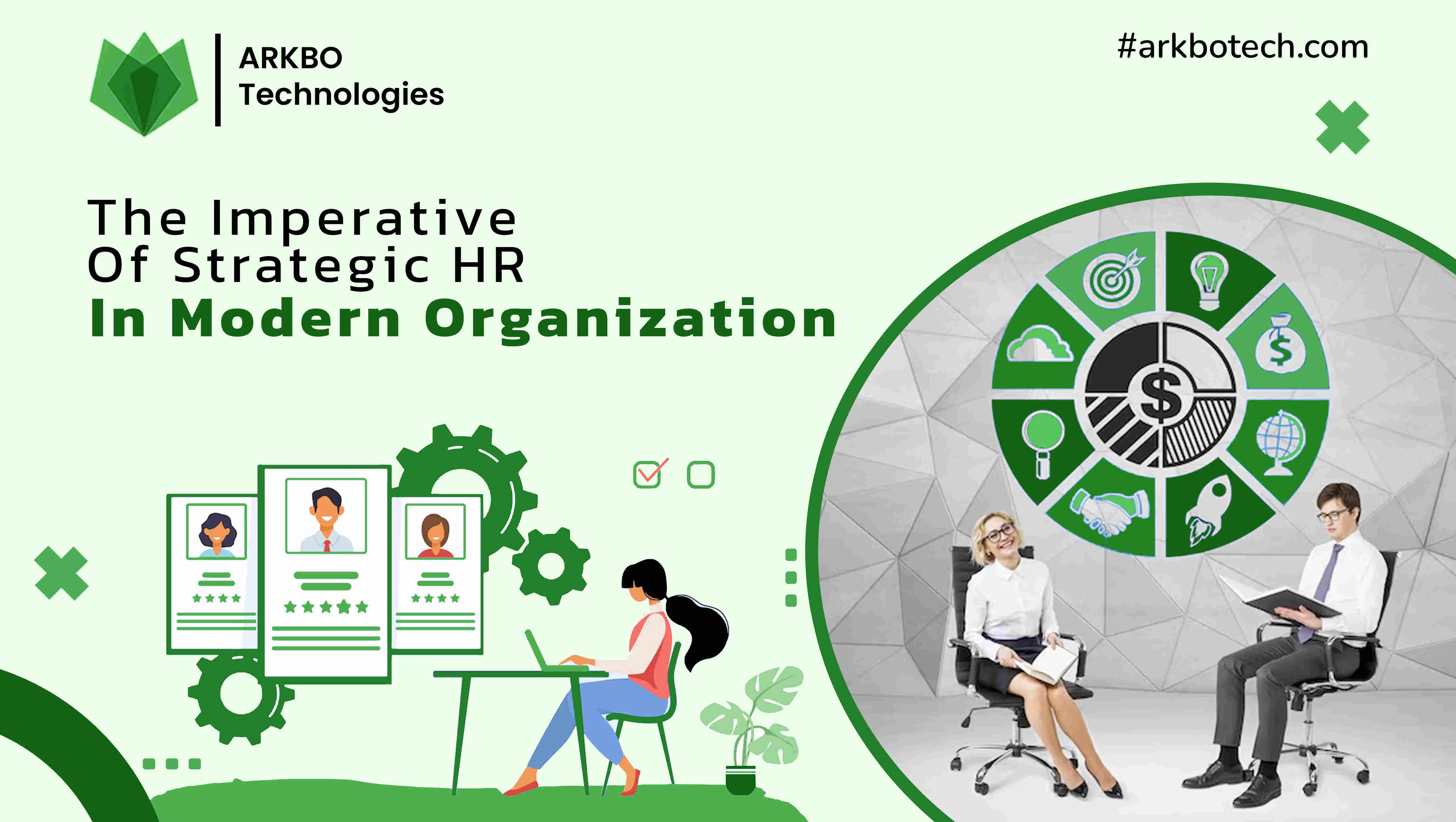
In today’s rapidly evolving business landscape, the importance of Strategic Human Resources (HR) cannot be overstated. As organizations strive to maintain a competitive edge, the role of HR has transitioned from traditional administrative functions to becoming a pivotal player in driving business success. This blog explores why organizations need strategic HR and its profound impacts on business performance, employee engagement, and overall organizational health.
Understanding Strategic HR
Strategic HR involves aligning human resource management with the strategic goals and objectives of the organization. This approach ensures that HR practices are not just reactive or administrative but are proactive and integral to achieving long-term business success. It encompasses a range of activities, including workforce planning, talent management, employee development, performance management, and organizational culture.
Why Organizations Need Strategic HR
Aligning HR with Business Goals: Strategic HR ensures that HR practices are directly linked to the strategic objectives of the organization. By aligning HR with business goals, organizations can ensure that their human capital is effectively utilized to drive business performance. This alignment helps in identifying the skills and competencies required for achieving strategic goals and developing plans to attract, develop, and retain talent with those capabilities.
Enhancing Organizational Agility: In today’s dynamic business environment, organizations need to be agile to respond to market changes swiftly. Strategic HR plays a critical role in enhancing organizational agility by fostering a flexible and adaptable workforce. This involves creating a culture of continuous learning and development, encouraging innovation, and implementing agile HR practices that can quickly respond to changing business needs.
Driving Employee Engagement and Retention: Employee engagement is crucial for organizational success. Engaged employees are more productive, motivated, and committed to their work. Strategic HR focuses on creating a positive work environment, recognizing and rewarding employee contributions, and providing opportunities for growth and development. These efforts significantly enhance employee engagement and reduce turnover rates, thereby retaining top talent within the organization.
Improving Performance Management: Effective performance management is essential for achieving business objectives. Strategic HR develops performance management systems that align individual goals with organizational objectives. This includes setting clear expectations, providing regular feedback, and recognizing and rewarding high performance. Such systems not only improve individual and team performance but also contribute to overall organizational success.
Fostering a Positive Organizational Culture: Organizational culture plays a vital role in attracting and retaining talent, as well as in driving business success. Strategic HR works on building a strong, positive organizational culture that aligns with the company’s values and goals. This involves promoting a culture of inclusivity, diversity, and collaboration, which enhances employee satisfaction and fosters a sense of belonging.
Facilitating Change Management: Change is inevitable in any organization. Whether it’s technological advancements, market shifts, or internal restructuring, organizations must navigate change effectively to stay competitive. Strategic HR plays a crucial role in facilitating change management by preparing and supporting employees through transitions. This includes clear communication, training programs, and creating a culture that embraces change.

Impacts of Strategic HR
Enhanced Business Performance: When HR practices are strategically aligned with business goals, organizations are better positioned to achieve their objectives. Strategic HR contributes to improved business performance by ensuring that the right talent is in place, employees are engaged and motivated, and there is a strong alignment between individual and organizational goals.
Increased Employee Productivity: Strategic HR initiatives, such as effective performance management and employee development programs, lead to increased productivity. Employees who are well-trained, engaged, and aligned with the organization’s goals are more likely to perform at their best. This increased productivity translates into better business outcomes and a stronger competitive advantage.
Greater Talent Attraction and Retention: Organizations with strategic HR practices are more successful in attracting and retaining top talent. A positive organizational culture, opportunities for growth and development, and effective recognition and reward systems make the organization an attractive place to work. This reduces turnover rates and ensures that the organization retains its most valuable assets.
Improved Employee Satisfaction and Well-being: Strategic HR focuses on creating a positive work environment and promoting employee well-being. This includes initiatives such as work-life balance programs, health and wellness initiatives, and creating a supportive and inclusive culture. These efforts lead to higher employee satisfaction, which in turn contributes to better performance and lower absenteeism.
Enhanced Organizational Agility and Innovation: By fostering a culture of continuous learning and adaptability, strategic HR enhances organizational agility. Employees are encouraged to develop new skills, embrace change, and innovate. This agility and innovation are crucial for organizations to stay competitive and respond to market changes effectively.
Effective Risk Management: Strategic HR plays a key role in managing risks related to human capital. This includes identifying and mitigating risks associated with talent shortages, succession planning, and compliance with labor laws and regulations. By proactively addressing these risks, organizations can avoid potential disruptions and ensure business continuity.
In conclusion, the importance of strategic HR in modern organizations cannot be overstated. By aligning HR practices with business goals, enhancing organizational agility, driving employee engagement, and fostering a positive organizational culture, strategic HR plays a critical role in achieving business success. The impacts of strategic HR are far-reaching, contributing to enhanced business performance, increased productivity, greater talent attraction and retention, improved employee satisfaction, and effective risk management.
As organizations continue to navigate the complexities of the modern business landscape, the role of strategic HR will only become more crucial. By adopting a strategic approach to HR, organizations can ensure that they are well-equipped to meet their current and future challenges, driving sustained success and growth.
Read more relevant blogs